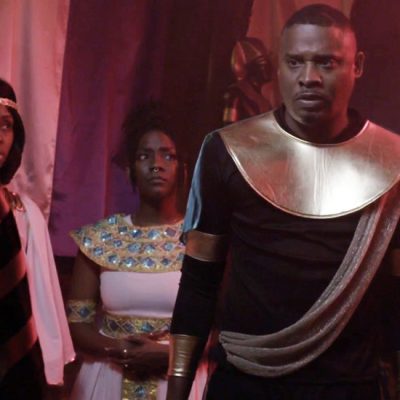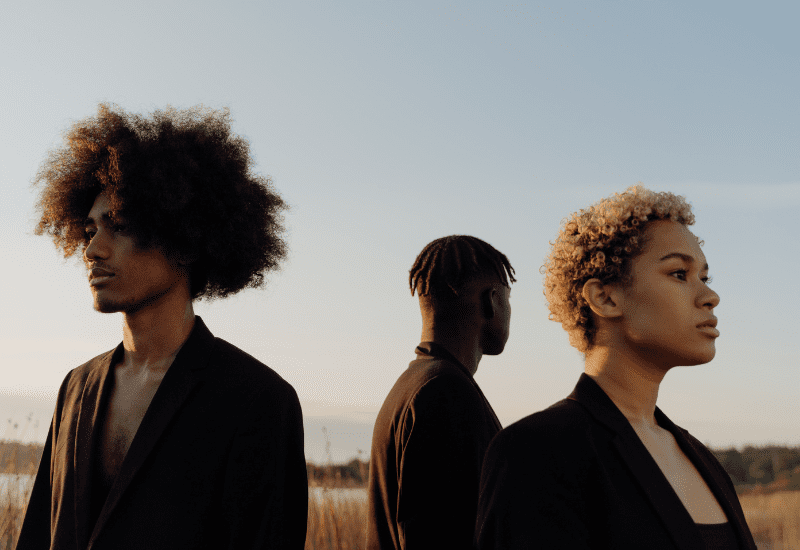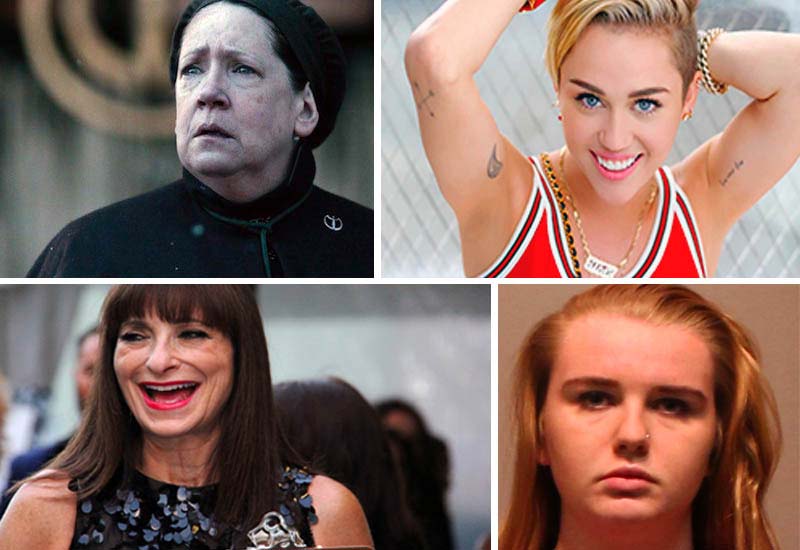
Michelle Wolf went straight for the jugular at the White House Correspondents’ Dinner. From hitting 45 where it hurts by declaring him broke to calling out all the journalists in the room for buying into the Trump spectacle in exchange for ratings, no one was safe.
While her performance is being championed by liberals and fellow comedians, Wolf is also being met with criticism from the right. In one of her most memorable segments, Wolf critiqued Press Secretary Sarah Huckabee Sanders addressing her directly by confessing, “I have to admit, I’m a little starstruck. I loved you as Aunt Lydia in The Handmaid’s Tale.” This has sparked quite a creative debate between the right, left, and the in-between of the Twitterverse, under the hashtag #AuntLydia. Some tweeters have mistakenly accused Wolf of comparing the looks of the 30-something-year-old Press Secretary to that of a 60-year-old actress. More liberal Twitter users have successfully pointed out that these offended conservatives have failed to realize that the thread that connects Sanders and Aunt Lydia is not their faces (albeit acknowledging their resemblance is not a sexist practice) but their shared unfaltering loyalty to a regime committed to oppressing practically everyone, including women – not their faces.
Wolf’s Aunt Lydia comment along with the declaration of Sanders as a liar who uses the ashes of truth for makeup seems to be the main focus of post-dinner commentary. But for me, the most interesting piece of Wolf’s critique of Sanders, and perhaps her performance as a whole, is when Wolf states, “I’m never really sure what to call Sarah Huckabee Sanders…like what’s Uncle Tom but for white women who disappoint other white women?”
As a black woman in America, I found her attempt to revise the Uncle Tom stereotype to fit a white woman to be the most riveting aspect. We are all aware of Becky With The Good Hair, and even Susan, the nosey-ass co-worker, but I think what we really need right now, in this particular moment in history, is an attempt to solidify white stereotypes, partly by writing them down. After all, if we follow Christian ideology, demons can only be cast out (or at the very least addressed) when you know their name. I have attempted to name and define several white women stereotypes, but please note this list is by no means exhaustive.
1. Aunt Lydia (white pronunciation necessitates you say it like the insect, not the relative)
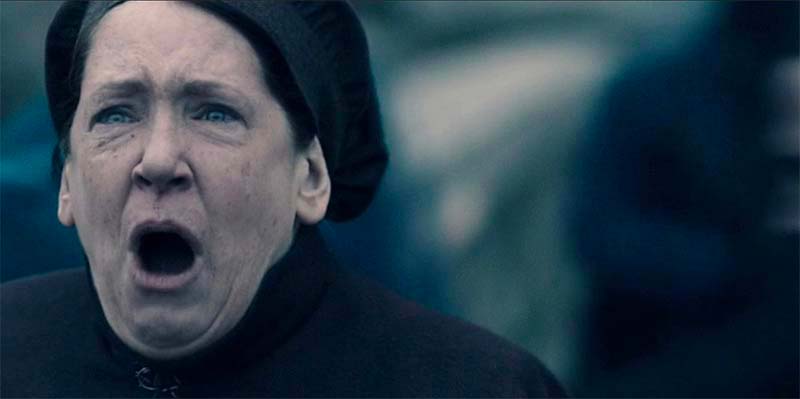
A white woman who acts in complete contradiction to her own interests. She is often found supporting the very same heteronormative white patriarchy that oppresses her and her fellow women, like the 44% of college-educated white women who voted for Trump. No one knows why she is so attached to her own persecution, but for some reason, it seems to shape her identity. Beware, as Aunt Lydia’s are the type to seek power, particularly by adopting the strategies of the white male.
2. Jeanne Beker (or simply Beker)

The world revolves around this whirlwind of a woman and she takes your critiques of white supremacist practices personally, despite vocally championing equality for all. She will claim that the passionate way you speak about the topic at hand is a direct attack on her own personal character. She is also known to try and talk over you, oftentimes claiming your ideas as her own. If her strategies of playing the victim and marking you as the attacker, or her attempt to vocally overpower you do not work, be careful she may result to her most effective method – the deployment of white tears.
3. Miley (a.k.a. Smiley)
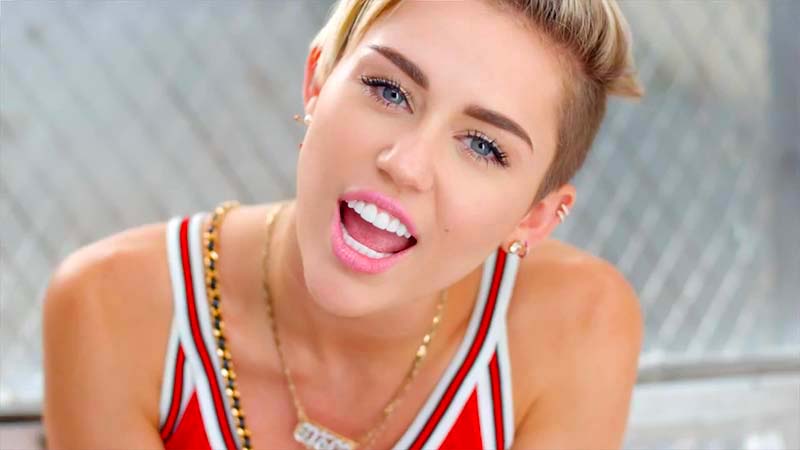
This particular brand of white woman vacations from the bland, humdrum of white life by hanging out with black people and participating in their cultural practices, oftentimes making a complete fool of herself. She steals from black culture when she feels like it and then denounces it when it no longer serves her.
4. Carolyn Bryant (if born before 1965; Lena Dunham, if born after)
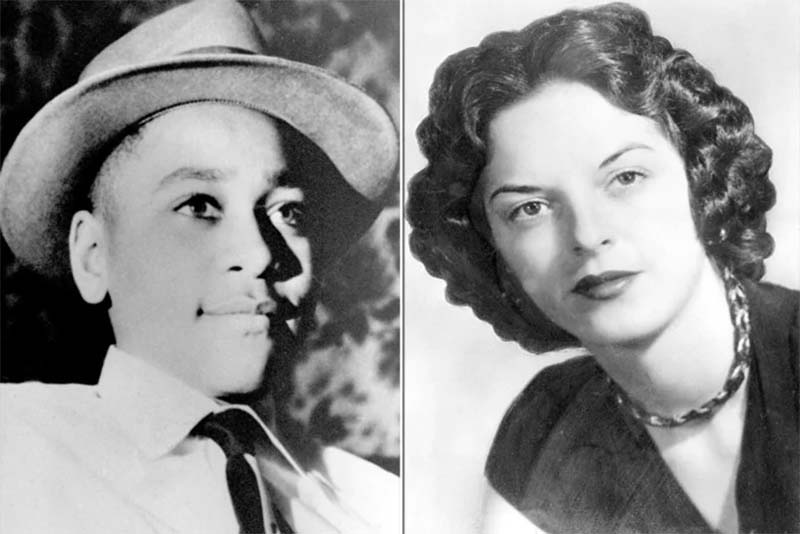
Her sex appeal and overall self-worth are determined by her ability to turn the heads of black men. When unsuccessful, she weaponizes her illusory sense of rejection from her target to have him brutalized and/or murdered, both symbolically and literally. When her heinous actions are revealed either by her subconscious or via third parties, she will apologize; but it does nothing for her target, especially considering her confession can occur anywhere from days to decades later. It does, however, allow her to release the weight of her guilt, be forgiven by her peers, and be admitted by white Jesus into white heaven.
5. Brianna Rae (best known as the “racist roommate from hell”)
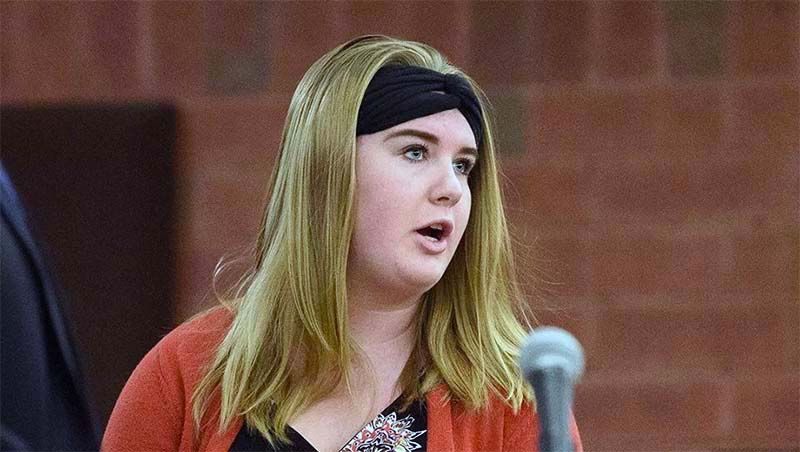
This not-so-crafty “lady” throws rocks and then hides her hands. She is the epitome of passive-aggressive. She smiles to your face, but behind your back plots your destruction, all while acting completely surprised when you vocalize what you know to be a hostile environment. She thinks she is so clever that she can brag about her stone tossing in conversations with friends, and more publicly via social media; after all, there is no one to check her. She is white, surely she will get away with her wickedness. And unfortunately in some ways, she can, for while she might get caught and suffer somewhat from her actions, they will often not have the permanent ramifications they rightfully deserve.
6. Michelle Wolf
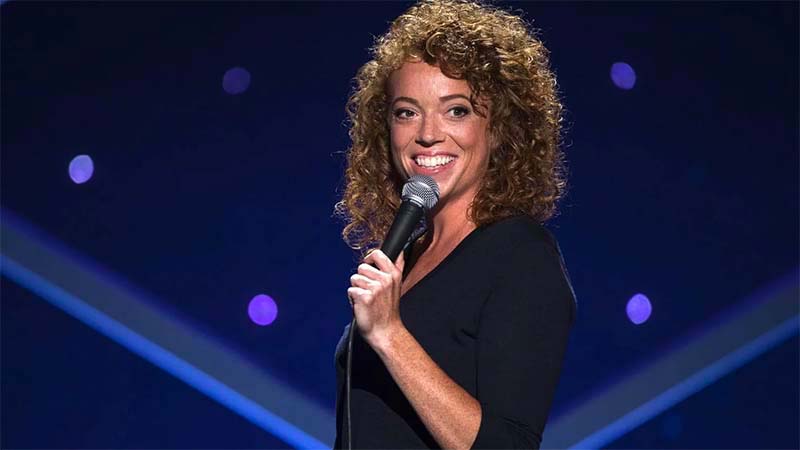
Please note that Michelle Wolf is NOT a stereotype of a white woman; unfortunately, this type of woman is not as prevalent in the white community. But when found, she can be heard calling out problematic white women and white practices. She is not restricted by societal practices meant to keep the ideology of white supremacy elevated. She does not apologize or attempt to backtrack when her peers do not like the truth she speaks. And most importantly, from our perspective, she does not borrow, steal, or lampoon black cultural practices to enact her mission. While no one is saying she deserves a black card, her actions are definitely commendable and we can only hope there will be a lot more howling from women like her.
What stereotypes am I missing? Does Taylor Swift fall into one of these stereotypes, or does she warrant her own? What about Rachel Dolezal? What are some for white men? Let’s talk. Please leave your ideas, suggestions, critiques, etc. below.





